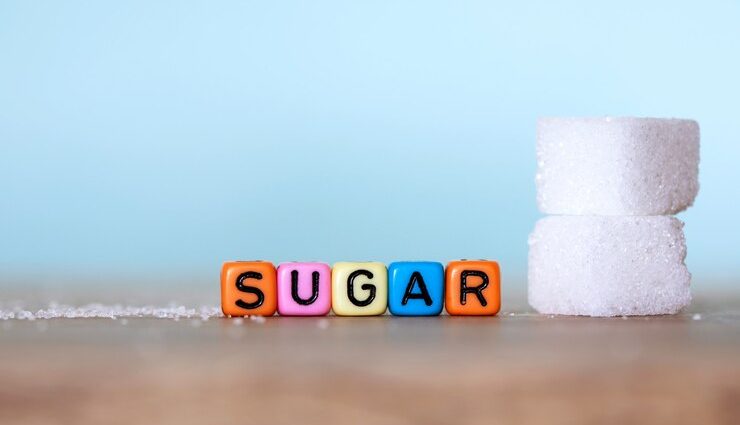Have you ever felt the urge to eat something sweet to feel better? Sugar is socially associated with goodness, richness, and pleasure. Jean de la Fontaine said, “A sweet thing is a true friend.” But is it possible that we should change this common perception?
We have been fond of sweets since we were born. According to a study carried out at the University of Washington in the United States, newborns already have a marked preference for sugary flavors. In contrast to other taste sensations, sweet is their favorite.
What is the reason? According to a large part of the scientific community, it is an evolutionary vestige. In the past, young people consumed high-calorie foods, i.e. more sugary ones. Thanks to this habit, they increased their chances of survival when food was scarce.
Nowadays, this habit, although it seems to remain in our genetic code, is not so useful for our survival. Nevertheless, we still love sugar and even consume it when we feel bad. But is it really good for us?
Is sugar a balm for happiness?
The answer is no. The truth is that sugar consumed without moderation is not very beneficial for our bodies. However, it should be noted that in the right amount, it is necessary. But in excess, it is very harmful.
Does this mean that we can’t have a donut or a sweet treat from time to time? Of course not. The problem arises when we eat foods with excess sugar daily. Why? Because many of the products we usually eat, not counting treats, already contain an excess of this ingredient.
Nowadays, a large part of the food we eat regularly is made with sweet, empty calories, that is, without essential nutrients that are necessary for our body, but that give it a good taste. This detail, which is very common even in salty foods, not only does not make us happier, but it harms our health and makes us more miserable.
Moreover, according to Paul van der Velpen, head of the Health Service in Amsterdam, the Netherlands, excessive sugar can cause drug-like effects, creating a habit capable of becoming addictive .
What effects does sugar have on our body?
As we have discussed on other occasions, proper nutrition is directly associated with our mental state. With a balanced diet rich in essential nutrients, brain and body functions will function optimally.
However, too much sugar, especially that found in sweets and other highly processed products, is harmful to physical health, and therefore, to mental health. What’s more, as we have said, it can cause addiction, which makes it even more dangerous.
Doctor and writer Nancy Appleton has created a list of negative effects that sugar consumption can have on our bodies. Among the most striking ones for our happiness, we can highlight:
- Sugar causes a rapid adrenaline rush, so if you’re taking it to relax, you’re having the opposite effect.
- Sugar is an excellent conductor of anxiety, so in depressive and stressful processes, it is counterproductive.
- In children, it causes irritability and difficulty concentrating. This effect, more pronounced in children, can also be extrapolated to adults.
- Because it is addictive, excessive sugar consumption could increase the risk of alcoholism. Let us not forget that these drinks also contain sugars.
- Sugar may cause premature aging, which will affect our confidence and self-esteem.
Conclusions about sugar and happiness
These are just some of the effects that sugar can have on our bodies, which also extend to our psyche. But the list is long, as it could lead to cancer and dangerous physical destabilizations.
But far from creating alarm, we must say that a sensible consumption of sugars will not have any counterproductive effects. The use of common sense will be our best ally. We must not forget that we find sugar in fruit, vegetables, and all kinds of products that we consume regularly.
“In the long run, the sweetest things turn bitter”
-Anonymous-
That is to say, if you crave something sweet occasionally, eat it without any problem. But if you feel that you need it constantly, you may be facing a more serious problem. Sugar not only undermines happiness as a state – beyond the pleasure that can be felt when tasting it – but in excess, it most likely produces the opposite effect, reinforcing precisely the anxiety that you feel and that you try to alleviate by visiting the fridge or the candy cupboard.
